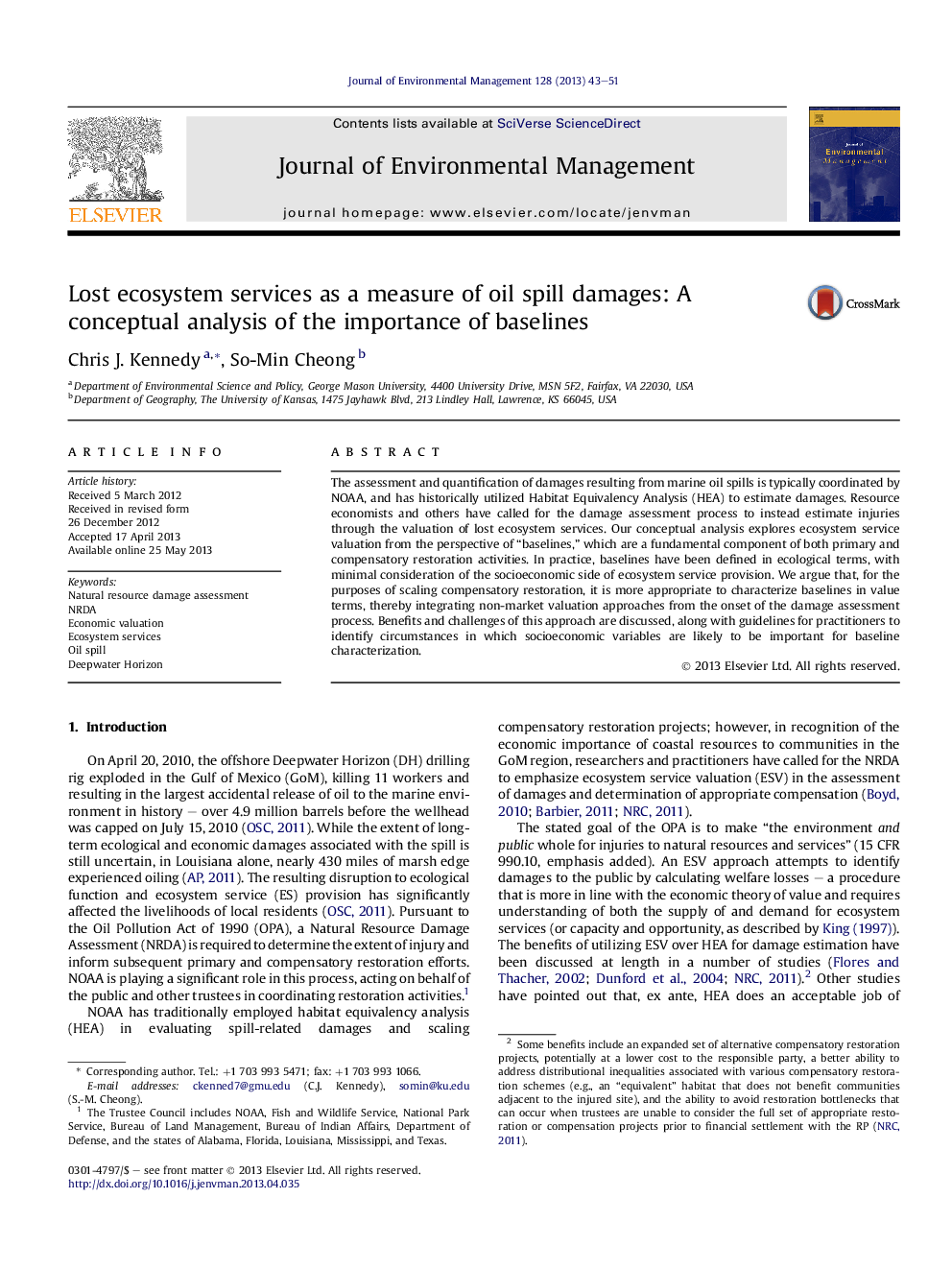| Article ID | Journal | Published Year | Pages | File Type |
|---|---|---|---|---|
| 7484139 | Journal of Environmental Management | 2013 | 9 Pages |
Abstract
The assessment and quantification of damages resulting from marine oil spills is typically coordinated by NOAA, and has historically utilized Habitat Equivalency Analysis (HEA) to estimate damages. Resource economists and others have called for the damage assessment process to instead estimate injuries through the valuation of lost ecosystem services. Our conceptual analysis explores ecosystem service valuation from the perspective of “baselines,” which are a fundamental component of both primary and compensatory restoration activities. In practice, baselines have been defined in ecological terms, with minimal consideration of the socioeconomic side of ecosystem service provision. We argue that, for the purposes of scaling compensatory restoration, it is more appropriate to characterize baselines in value terms, thereby integrating non-market valuation approaches from the onset of the damage assessment process. Benefits and challenges of this approach are discussed, along with guidelines for practitioners to identify circumstances in which socioeconomic variables are likely to be important for baseline characterization.
Keywords
Related Topics
Physical Sciences and Engineering
Energy
Renewable Energy, Sustainability and the Environment
Authors
Chris J. Kennedy, So-Min Cheong,
